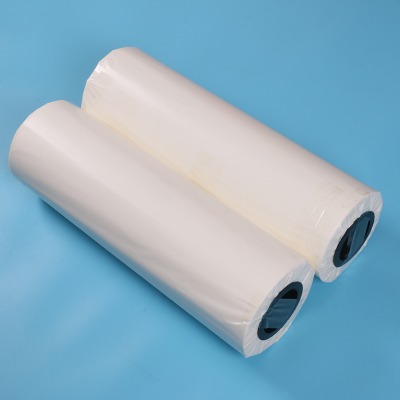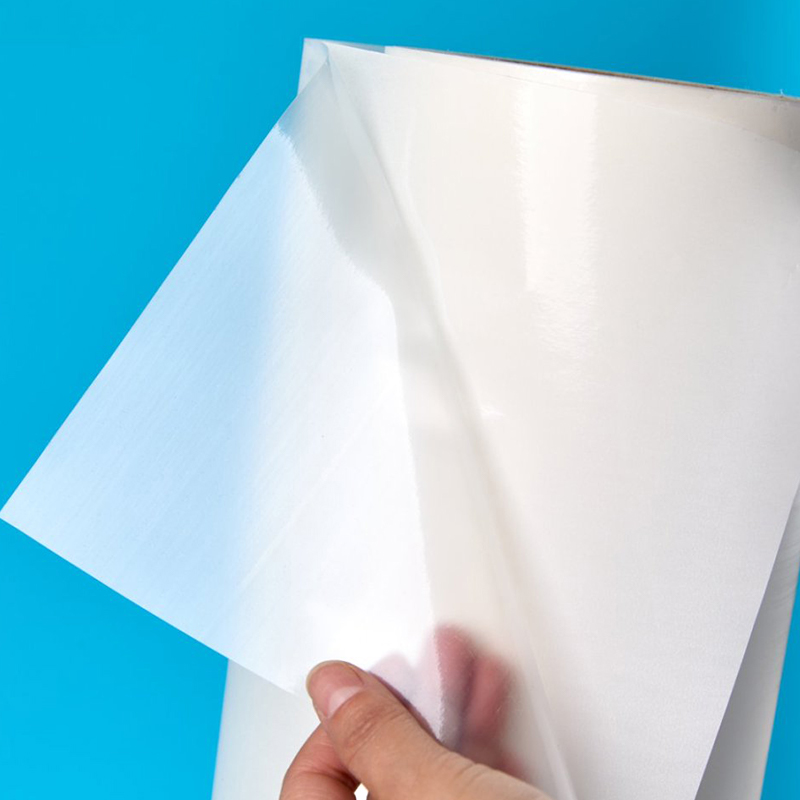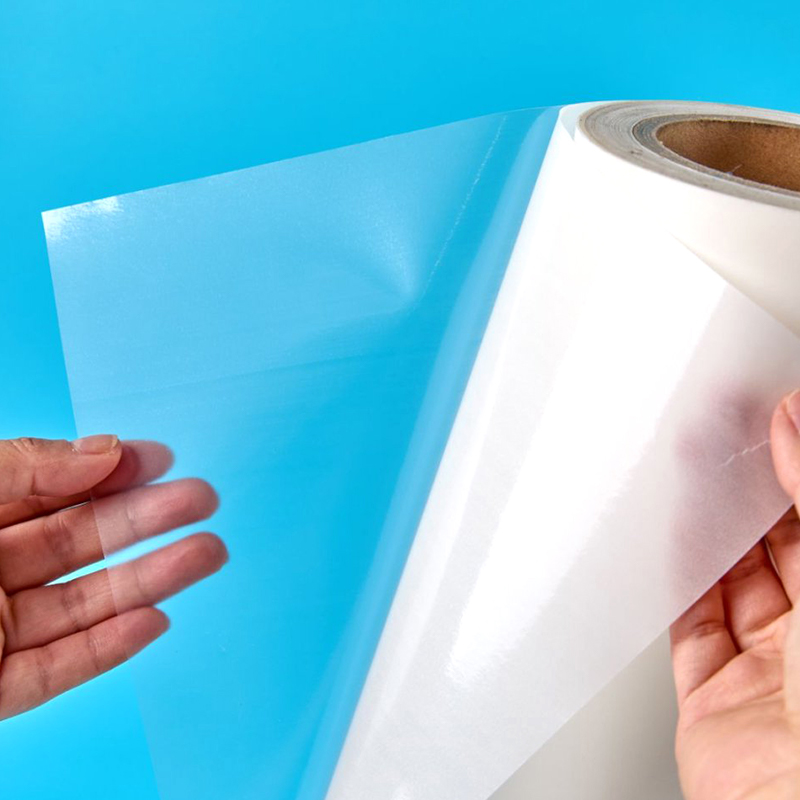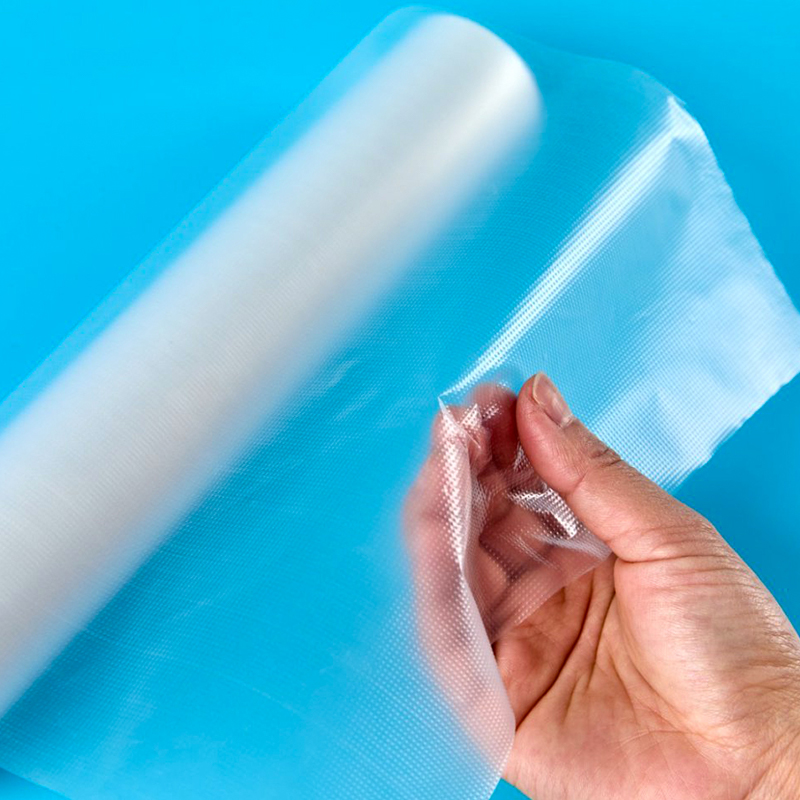1. Understanding TPU Hot-Melt Adhesive Film
TPU (Thermoplastic Polyurethane) hot-melt adhesive film is a high-performance bonding material that combines the elasticity of rubber with the processability of thermoplastics. Unlike traditional adhesives, it is solvent-free and applied in a molten state, forming strong, flexible bonds upon cooling.
Key Characteristics
- Material Composition: TPU hot-melt films consist of segmented polymers with hard (isocyanate) and soft (polyol) domains, balancing strength and flexibility.
- Thermal Properties:
- Melt Temperature: Typically 80-160°C (varies by grade)
- Service Temperature Range: -40°C to +120°C (some high-performance grades extend to 150°C)
- Adhesion Strength:
- Peel Strength: 5-50 N/cm (depending on substrate and processing)
- Shear Strength: 2-20 MPa
- Elongation & Flexibility:
- Elongation at Break: 300-800%
- Shore Hardness: 60A-90A (adjustable for soft or rigid bonds)
Advantages Over Other Adhesive Films
| Property | TPU Hot-Melt Film | EVA Hot-Melt Film | Acrylic PSA Film |
| Flexibility | Excellent | Moderate | Poor |
| Heat Resistance | High (up to 120°C+) | Low (~80°C) | Moderate (~100°C) |
| Chemical Resistance | Good (oils, solvents) | Poor | Fair |
| Elastic Recovery | Yes (100% rebound) | No (permanent deformation) | No |
| Bonding Speed | Fast (solidifies in seconds) | Fast | Slow (pressure-sensitive) |
Why TPU is Ideal for Hot-Melt Applications
- Versatile Bonding: Adheres well to textiles, plastics, metals, and composites.
- Durability: Resists fatigue, vibrations, and dynamic stresses.
- Recyclability: Thermoplastic nature allows remelting and reprocessing.
- Clean Application: No solvents or volatile organic compounds (VOCs).
2. TPU Hot-Melt Adhesive Film: Properties, Applications, and Manufacturing Insights
Key Properties
TPU hot-melt adhesive films exhibit unique characteristics that make them superior to conventional adhesives:
1. Mechanical Properties
- Tensile Strength: 20-50 MPa
- Elongation at Break: 300-800%
- Tear Resistance: 40-120 kN/m
- Shore Hardness: 60A-90A (adjustable based on formulation)
2. Thermal Performance
- Melt Temperature Range: 80-160°C
- Service Temperature: -40°C to +120°C (short-term up to 150°C)
- Heat Resistance: Maintains bond integrity at continuous 100°C
3. Adhesion Characteristics
- Peel Strength: 8-50 N/cm (varies by substrate)
- Shear Strength: 3-20 MPa
- Tack Time: 5-30 seconds (depending on cooling conditions)
4. Environmental Resistance
- Excellent UV stability (500+ hours in QUV testing)
- Hydrolysis resistance (passes 85°C/85% RH testing)
- Chemical resistance to oils, mild acids, and alkalis
Comparative Performance Analysis
| Property | TPU Film | EVA Film | PA Film | PO Film |
| Max Service Temp (°C) | 120 | 80 | 150 | 100 |
| Min Service Temp (°C) | -40 | -20 | -30 | -10 |
| Elongation at Break (%) | 300-800 | 50-300 | 100-300 | 200-500 |
| Chemical Resistance | Excellent | Poor | Good | Fair |
| Moisture Resistance | Good | Fair | Poor | Excellent |
| Bonding Speed | Fast | Fast | Medium | Slow |
Primary Applications
1. Automotive Industry
- Interior trim bonding (dashboards, door panels)
- Headliner and carpet attachment
- Vibration damping components
2. Textile & Footwear
- Seam sealing for waterproof garments
- Shoe component assembly (uppers, soles)
- Performance sportswear bonding
3. Electronics
- Flexible circuit board lamination
- Display module assembly
- Component encapsulation
4. Industrial Manufacturing
- Composite material bonding
- Filter media construction
- Industrial tape production
Manufacturing Insights
1. Raw Material Preparation
- TPU pellet selection (ester-based vs ether-based)
- Additive incorporation (tackifiers, stabilizers)
- Moisture control (<0.05% before processing)
2. Extrusion Process Parameters
- Temperature Zones: 160-200°C
- Screw Speed: 20-60 rpm
- Die Width: Adjustable from 500-2000mm
- Film Thickness Control: ±5 micron tolerance
3. Quality Control Measures
- Online thickness monitoring (laser micrometers)
- Adhesion testing (peel, shear, and tack tests)
- Thermal analysis (DSC for melt point verification)
4. Post-Processing Considerations
- Winding tension control (10-30 N)
- Release liner application (when required)
- Slitting precision (±0.2mm tolerance)
3. Industrial Uses of TPU Hot-Melt Adhesive Film
TPU hot-melt adhesive films have revolutionized industrial bonding applications due to their unique combination of flexibility, durability, and high-performance characteristics. Below we examine their key industrial applications with technical specifications where applicable.
1. Automotive Manufacturing
Door Panel Assembly
- Bond strength: 15-25 N/cm peel strength
- Temperature resistance: -40°C to 85°C cyclic testing
- Vibration resistance: passes 1000+ hours of durability testing
Headliner Bonding
- Weight reduction: 30-40% lighter than mechanical fasteners
- Processing time: 30-60 seconds bonding cycle
- Flame retardancy: meets FMVSS 302 standards
| Application | TPU Advantage | Traditional Method |
| Interior Trim | No VOC emissions | Solvent-based adhesives |
| Sound Damping | 25% better vibration absorption | Rubber-based solutions |
| Composite Bonding | 40% faster processing | Epoxy resins |
2. Textile & Apparel Industry
Waterproof Seam Sealing
- Hydrostatic pressure: >10,000 mm H₂O
- Wash durability: 50+ industrial washes
- Breathability: MVTR >3000 g/m²/24h
Footwear Manufacturing
- Bond strength to EVA: 8-12 N/mm
- Flex endurance: >100,000 Ross flex cycles
- Processing temperature: 110-130°C
3. Electronics Assembly
Flexible Circuit Bonding
- Dielectric strength: >50 kV/mm
- Dimensional stability: <0.5% shrinkage
- Thermal conductivity: 0.2-0.5 W/mK
Display Module Assembly
- Optical clarity: >90% light transmission
- Outgassing: <0.1% TML (CVCM)
- CTE: 50-80 ppm/°C (matches glass substrates)
4. Medical Device Manufacturing
Wearable Health Monitors
- Skin adhesion: 0.5-2 N/cm (removable)
- Biocompatibility: ISO 10993-5 compliant
- Sterilization: Ethylene oxide compatible
Wound Care Products
- Moisture vapor transmission: 500-2000 g/m²/24h
- Adhesion to non-wovens: 3-8 N/cm
- Elongation: 300-500% for movement comfort
5. Industrial Composite Bonding
Aerospace Components
- Weight savings: 15-25% vs mechanical fasteners
- Fatigue resistance: 10⁷ cycles at 70% load
- Service temperature: -55°C to 120°C
Filter Media Construction
- Chemical resistance: pH 2-12 stable
- Pore size maintenance: <5% variation after bonding
- Burst strength: >300 kPa
Technical Comparison: Industrial Bonding Methods
| Parameter | TPU Film | Liquid Adhesives | Mechanical Fasteners |
| Process Speed | 10-60 sec | 2-24 hrs cure | 1-5 min per fastener |
| Joint Stress Distribution | Even | Variable | Point loads |
| Weight Addition | 5-20 g/m² | 50-200 g/m² | 100-500 g/m² |
| Corrosion Risk | None | Possible | High |
| Automation Potential | Excellent | Limited | Moderate |
4. Production Techniques for Optimal Performance
Anhui Haita New Material Technology Co., LTD. employs advanced intelligent manufacturing processes to produce high-performance TPU hot-melt adhesive films. Our production techniques combine precision engineering with smart factory technologies to ensure superior product quality and consistency.
1. Raw Material Selection & Preparation
TPU Resin Standards:
- Molecular weight: 80,000-120,000 g/mol
- Moisture content: <0.03% (pre-dried at 80°C for 4h)
- Melt flow index: 5-25 g/10min (190°C/2.16kg)
Additive Package:
- Tackifiers (10-20% by weight)
- UV stabilizers (0.5-2%)
- Antioxidants (0.1-0.5%)
- Flame retardants (for specialized grades)
2. Intelligent Extrusion Process
Our automated production lines feature:
| Parameter | Standard Range | Control Precision |
| Barrel Temperature | 160-200°C | ±1°C |
| Die Temperature | 175-185°C | ±0.5°C |
| Screw Speed | 20-60 rpm | ±0.2 rpm |
| Film Thickness | 25-250 μm | ±2 μm |
| Line Speed | 5-15 m/min | ±0.1 m/min |
- Real-time thickness monitoring (laser measurement)
- Automatic viscosity control (melt pressure feedback)
- Online defect detection (machine vision system)
3. Precision Coating & Lamination
Multi-layer Coating Technology:
- Base layer thickness: 15-50 μm
- Adhesive layer thickness: 10-40 μm
- Lamination speed: 3-10 m/min
Quality Parameters:
- Bond strength variation: <±5%
- Thickness uniformity: >98%
- Surface energy: 38-42 dynes/cm
4. Smart Manufacturing Advantages
Anhui Haita's intelligent workshop features:
1. Automated Material Handling
- 24-hour continuous feeding system
- Moisture-controlled storage (RH<30%)
2. Process Optimization
- AI-powered parameter adjustment
- Predictive maintenance systems
- Energy consumption monitoring
3. Quality Assurance
- 100% online inspection
- Automated sorting and packaging
- Traceability system (batch tracking)
5. Performance Comparison: Conventional vs Intelligent Production
| Parameter | Traditional Method | Anhui Haita's Intelligent Production |
| Thickness Tolerance | ±10 μm | ±2 μm |
| Production Yield | 85-90% | 98-99% |
| Energy Consumption | 1.2 kWh/kg | 0.8 kWh/kg |
| Batch Consistency | ±8% | ±3% |
| Changeover Time | 2-4 hours | 30-60 minutes |
6. Technical Support & Customization
Our R&D capabilities enable:
- Custom formulations (hardness: 60A-90A)
- Specialized performance grades:
- High-temperature resistant (up to 150°C)
- Ultra-flexible (600% elongation)
- Enhanced chemical resistance
- Rapid prototyping (2-4 week development cycle)
Anhui Haita New Material Technology Co., LTD. combines 20+ years of polymer expertise with cutting-edge intelligent manufacturing to deliver TPU hot-melt adhesive films that meet the most demanding industrial requirements. Our smart factory infrastructure ensures precise control over every production parameter, resulting in superior product performance and reliability.

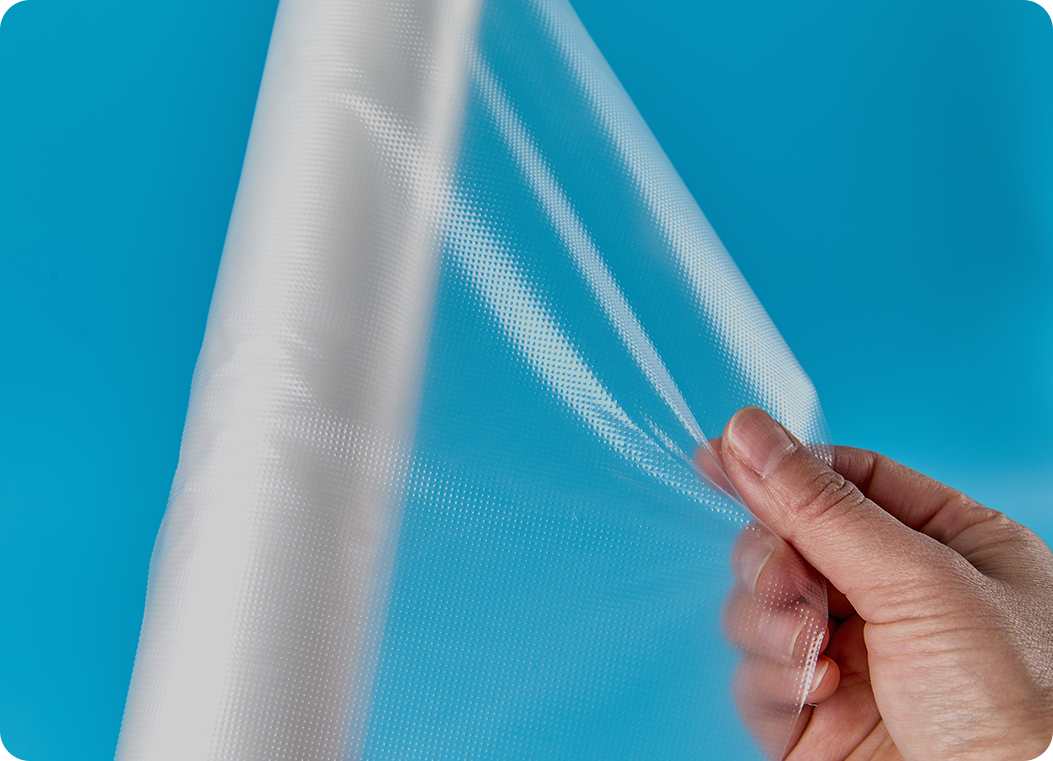
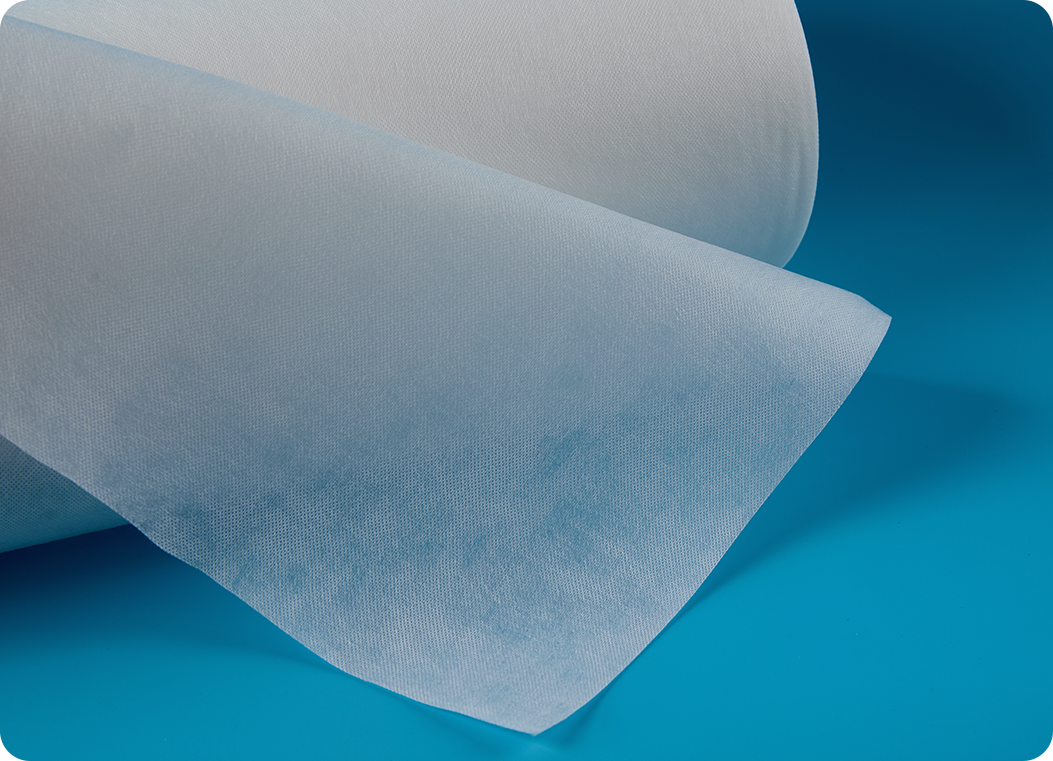


 English
English 中文简体
中文简体 Türk
Türk